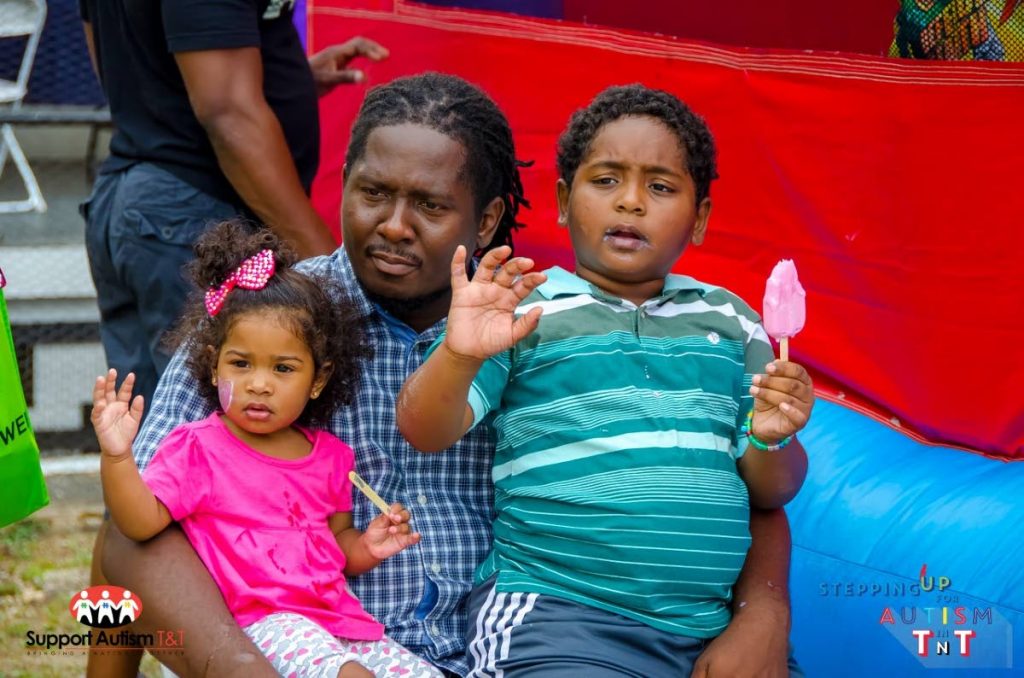The autism superhero family

DR RADICA MAHASE
SHIVA is a single father to six-year-old Anaya. “My girlfriend and I were living together when she got pregnant. Anaya came and within a year we knew that something was wrong – she never crawled and said words. We took her to the doctors and they said that she wasn’t developing like a normal child. At two-years-old she was diagnosed with autism.
“By this time Anaya’s mom and I were having serious problems – she was frustrated because the baby would cry all the time, she refused to accept that our child has special needs. She stopped caring for Anaya and one day she left. I got custody of my child and she has visitation rights. She never looked for Anaya though so since then it’s been my daughter and I.”
Last Wednesday, we celebrated International Day of the Families. In 1993, the UN General Assembly declared May 15 as The International Day of Families with the intention of promoting “awareness of issues relating to families and to increase the knowledge of the social, economic and demographic processes affecting families.” So many times we tend to forget the families with special needs children often deal with issues that can have immediate and long-term impact on the child with special needs and on the family unit.

First, having a child with special needs can have a negative impact on the parents. Raising a child with special needs often lead to financial burden and stress. In many cases one or the other parent might not be able to mentally or physically cope, might be in denial or might blame him/herself for the child’s special needs. Often parents feel that they are not doing enough for their child; that they are a failure. Parents of special needs children often experience mental and physical health problems.
Disagreements and stress eventually lead to divorce. Shiva is not the only single parent of a child with special needs.
Secondly, many times the siblings of the child with special needs are affected. As the child with special needs tend to need more attention from parents, siblings may not get the attention that they need. They feel neglected and undervalued. As everyday activities need to be changed and siblings have to rearrange their routine/lives to cater to the needs of the special child, siblings may feel that their needs are not being met. This can lead to resentment towards the special needs child.
According to Ashley Hartmann in a research paper Autism and its Impact on Families, siblings may be embarrassed about their special brother/sister around their peers; they may be jealous of the amount of time their parents spend with the special needs child; frustrated that they cannot have “normal” interaction/communication/relationship with their brother/sister with special needs; and they may be concerned and stressed over the feeling that the special needs child is causing their parents extra stress.
Sadly, an unhappy family/home environment will impact negatively on the individual with special needs. In fact, the overall well-being of the family is affected – everyone within the family unit is affected. This does not mean that every family with a child with special needs will fall apart or is falling apart. It simply means that a more conscious attempt has to be made to keep the family together and to create a secure, happy environment for each member of the family.
It starts when a child is diagnosed with autism/special needs – parents have to find a way to explain autism/special needs to the siblings so that they will better understand their brother or sister. A conscious attempt must be made to encourage active interaction between family members and the child with autism/special needs; to encourage the growth of relationships within the family unit; to ensure that the brothers/sisters also feel special and that they also have opportunities to engage in activities that they like and want to do. It is important to encourage all siblings to play together and for the entire family can take part in activities.
On another level, the family will benefit immensely from a proper support system. Active involvement in parents and siblings networks; counselling for the entire family; support from extended family and neighbours; exercise and other forms of self-care, are all crucial to the survival of the special needs family. As Shiva noted, “I only manage because my parents and sisters help me so much. They are my pillars of strength.”
Dr Radica Mahase is founder/director, Support Autism T&T

Comments
"The autism superhero family"